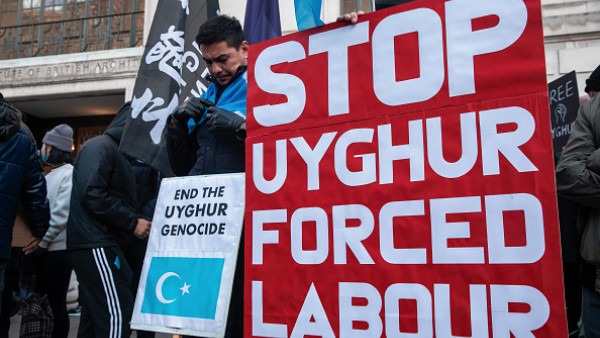The Senate Finance Committee in its two-year-long research found that car brands like BMW, Lands Rover, Jaguar, and Volkswagen have been purchasing spare parts from Xinjiang, China despite grave concerns about forced labour.
The report titled “Insufficient Diligence: Carmakers Complicit With CCP Forced Labour” stated that despite being aware that their vehicles contained prohibited parts in their supply chain, BMW and Jaguar had persisted in procuring parts from Chinese companies in violation of American law.
Furthermore, according to the Senate Finance Committee’s report, BMW shipped at least 8,000 small cars with banned parts to the US, even after the Chinese supplier had been flagged by the US government for participating in forced labour. Although Volkswagen took steps to correct the same.
The purpose of the investigation report, which was started by Oregon senator Ron Wyden, the chairman of the Senate Finance Committee, was to draw attention to the risks the automakers face when Xinjiang-produced goods are being blocked from entering the US due to the Uyghur Forced Labor Prevention Act.
In a statement, Wyden reportedly said that “automakers are sticking their heads in the sand and then swearing they can’t find any forced labour in their supply chains. Somehow, the Finance Committee’s oversight staff uncovered what multibillion-dollar companies apparently could not: that BMW imported cars, Jaguar Land Rover imported parts and VW A.G. manufactured cars that all included components made by a supplier banned for using Uyghur forced labour,” he added. “Automakers’ self-policing is not doing the job”.
Reportedly, automakers are not buying the components from Sichuan Jingweida Technology Group (JWD) directly but from a series of sub-suppliers.
Volkswagen still operates a facility in Xinjiang via a state-owned enterprise in China. Nonetheless, the automaker asserts that an outside organization conducted an audit and discovered no evidence of forced labour in 2023.
China, however, disputes the existence of any camps for forced labour in Xinjiang. According to the US government, between 2017 and 2019 Xinjiang detained over a million ethnic Uyghurs and other minorities in re-education centers.
The Uyghur population faces harrowing atrocities at the hands of the Chinese government. Reports indicate mass arbitrary detention, forced labour, and systematic suppression of religious and cultural practices. Uyghurs endure relentless surveillance, forced assimilation, and family separations, constituting a grave violation of human rights. Despite vehement denials from Beijing, international outcry continues to mount as evidence of these atrocities emerges, demanding urgent action to address this humanitarian crisis.
Earlier, the World Uyghur Congress (WUC) welcomed a recent call from the United Nations urging the Thai government to release 43 Uyghur refugees who have been arbitrarily detained for over a decade.

